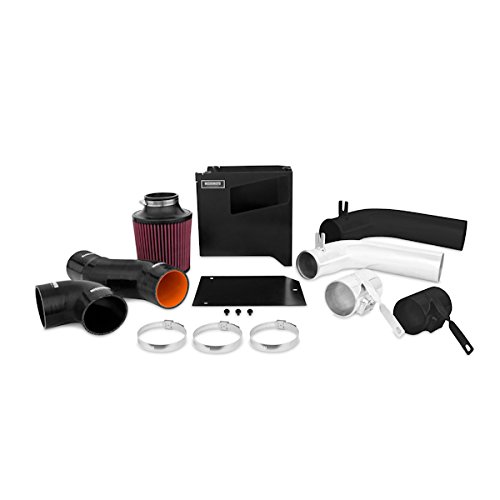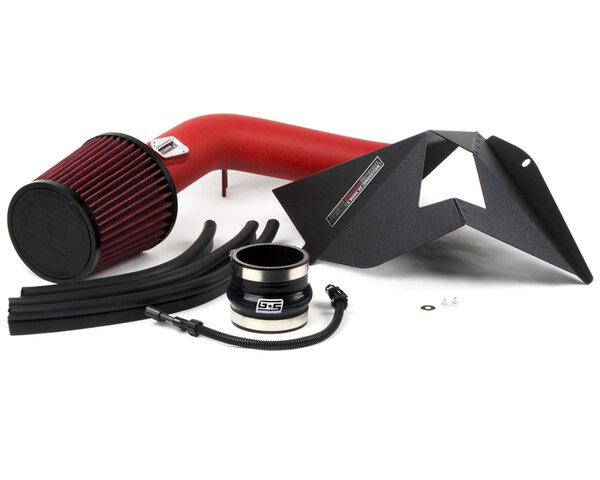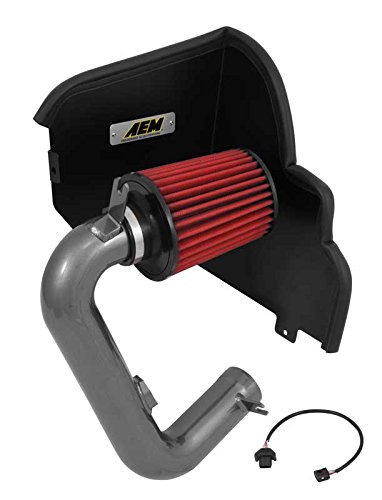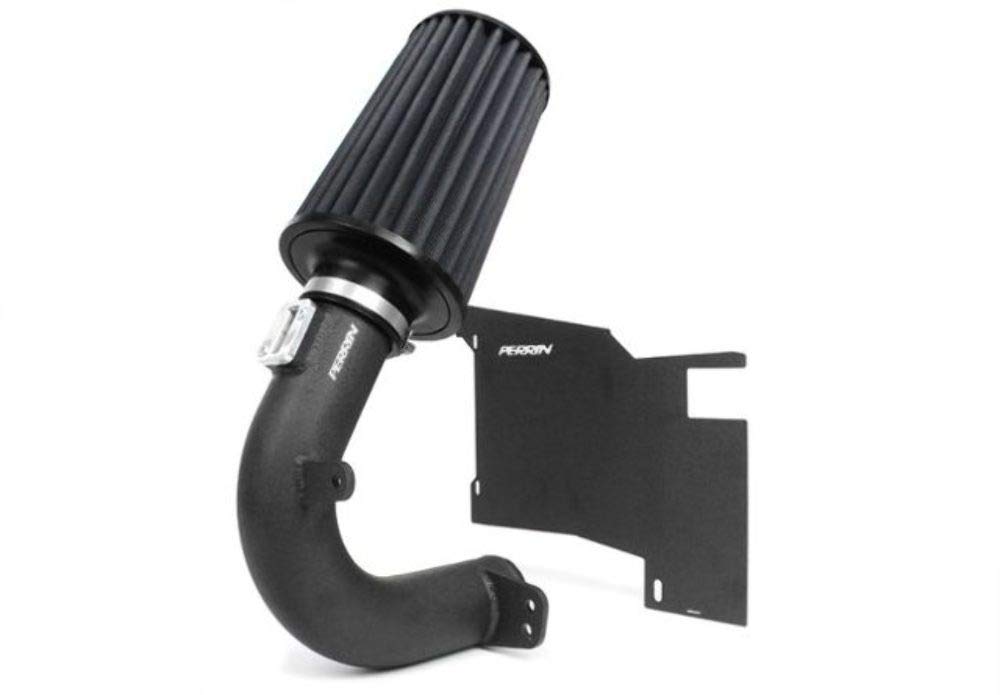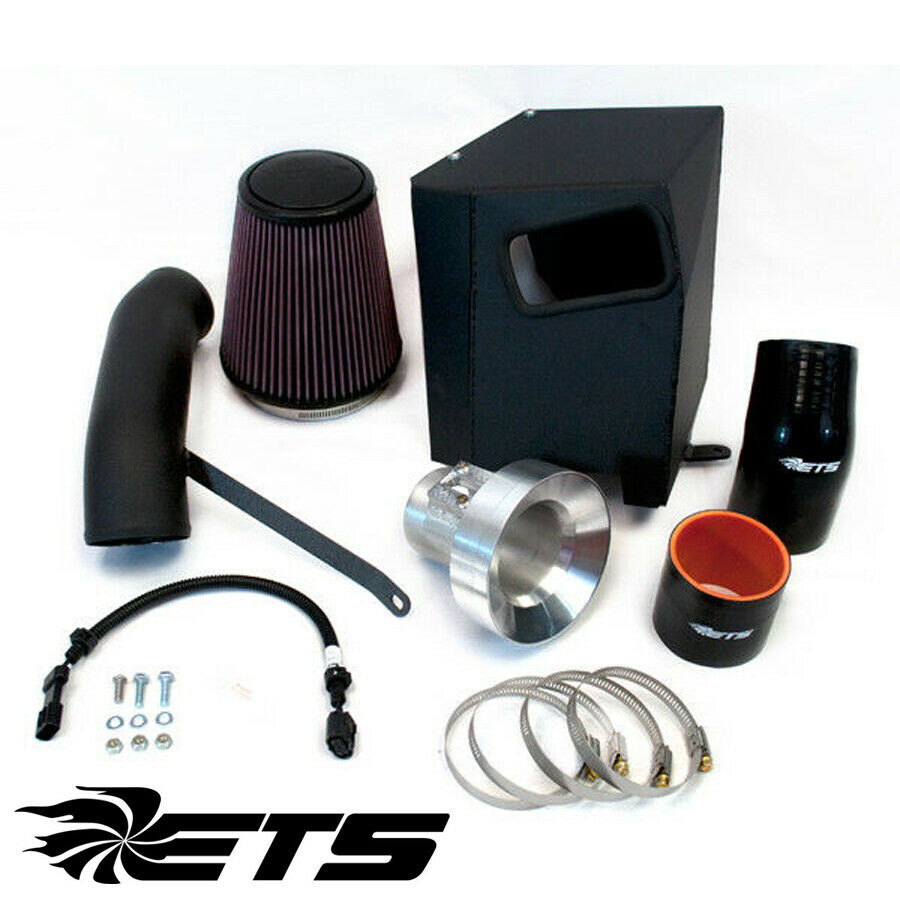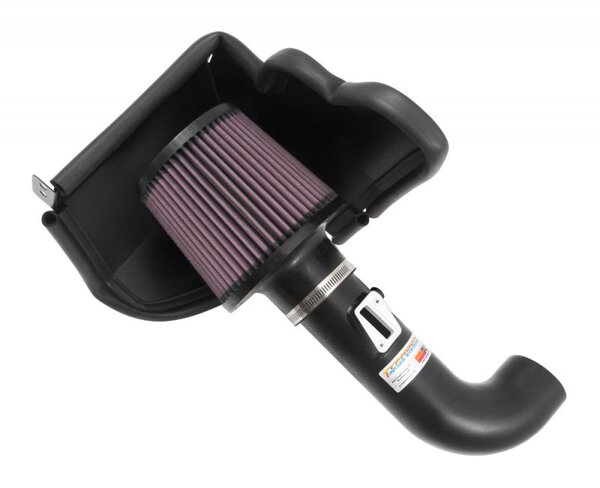Part of what makes the Subaru WRX so great is the turbo. If you've seen a modified WRX fly past you, you'll know how great the turbo spool and "psssh" noise from the blow-off-valve sounds.
Unfortunately, the way Subaru makes these cars, those sweet forced induction sounds are muffled by the stock intake. The good news is that lots of companies make aftermarket intakes that not only make all the sounds you dream of but add some power too.
An intake is one of the easiest to install mods for the 2015-2020 WRX, but which one should you pick? We've compiled this list to help you decide.
The Mishimoto Performance Intake is CARB approved, meaning it's legal for use and will pass smog inspections in California. California has some of the strictest emissions standards, but Mishimoto has gone through the trouble of getting it tested and approved, so car enthusiasts in California can still enjoy modding their cars.
This intake has a metal air box, shielding it from the engine bay's heat. It connects to the stock air duct under the hood, and pulls in cold air from the outside, keeping your intake air temperatures down to improve performance.
The Mishimoto Performance Intake has an off-the-shelf tune available from Cobb that can be purchased separately and loaded onto your AccessPort, making it easy to get your car running properly for this modification.
Pros
- Cobb has Stage 1+ and Stage 2+ tunes available for the intake.
- Includes a airbox that shields the intake from hot air, and retains the factory air duct to bring in cold air.
- The intake is CARB approved, so it can pass a smog inspection in California.
- It's priced lower than the Cobb Big SF Intake
Cons
- The off-the-shelf tune for use with the Cobb AccessPort must be purchased separately.
GrimmSpeed's intake the 2015-2020 Subaru WRX is designed to look at home in the engine bay with its included air box. The airbox uses the stock ducting for cooler airflow with more volume, and does an excellent job at keeping heat out, reducing the chance of knock and increasing performance.
GrimmSpeed has demonstrated torque gains across the whole curve, with 32ftlb (14.3% gains) at 3000rpm and 21whp (9.6% gains) at 5500rpm. This intake has been well designed to do its job, and get you some extra power. It also sounds great, letting you hear the turbo spool and blow-off-valve noises.
Pros
- Includes a full air box, utilizing the stock air duct.
- Aluminum tube bend is gentle for extra flow
Cons
- Not CARB certified for legal street use in California.
The AEM Cold Air Intake System is another great choice from a well-known brand. AEM was founded in 1987 as a tuning performance shop in Compton, California. AEM gained mainstream recognition when cars tuned by them won the “Battle of the Imports”, landing them on covers of Turbo Magazine and Sport Compact Magazine. Their first intake system was offered in 1994 as a DIY upgrade for the Honda CRX.
The intake system includes a heat shield to keep the heat of the engine away from the intake as well as a MAF extension cable for easy installation. Its filter is unique in that it's washable but doesn't require oiling.
Pros
- No oil needed for the filter
- Includes heat shield
Cons
- Not CARB certified for legal street use in California
- The heat shield does not cover the intake as well as the Cobb or Mishimoto airboxes.
The Cobb Big SF Intake comes from the same company that brought us the AccessPort, a staple in the Subaru tuning community. With off the shelf tunes available out of the box with the AccessPort, this is the easiest intake to install and get going with.
The Cobb Big SF intake comes with a metal airbox, shielding the intake from heat in the engine bay, and connects to the stock air duct and pulls cold air from the outside, making it truly a cold air intake.
Pros
- The Cobb AccessPort comes with Stage 1+ and Stage 2+ tunes preloaded for use with this intake.
- The included airbox shields the intake from hot air and uses the stock air duct.
Cons
- More expensive than other options
This intake comes from another well-known brand in the Subaru tuning community. Perrin has been manufacturing and selling Subaru performance parts since 2002, and now employs over 25 employees as of 2017, and has began CNC manufacturing parts in house.
Perrin claims this intake is made to keep the same MAF alignment and tubing size as the stock intake, making it safe to run without a tune, but the general consensus with tuners is that you shouldn't run an intake without a tune, or you risk causing damage to your engine. For this intake, no off-the-shelf tunes are available, so you'd need to get a custom e-tune made, or get pro-tune done on a dyno. If you decide to try running this intake without tuning, proceed at your own risk.
Pros
- Priced lower than some competitors.
- Perrin claims it can be used without a tune.
Cons
- No off-the-shelf tunes available.
- Includes a heat shield that covers one side, not a box, and doesn't use the stock air duct.
The ETS intake for WRX is another excellent choice. Extreme Turbo Systems is known for their intakes, intercoolers, exhaust, and other performance modifications for Japanese turbo cars like the Subaru WRX, Toyota Supra, Nissan GTR, and Mitsubishi Lancer Evo, as well as other makes such as BMW, Audi, Ford, and Lamborghini.
This intake system includes an air box, to keep as much hot air from inside the engine bay away from the intake. Although ETS suggests it is safe to run without a tune, we suggest getting an e-tune or dyno tune for the safety of your engine and maximum performance gains. Unfortunately, there is no off-the-shelf tune available.
Pros
- Includes a full air box, utilizing the stock air duct.
- Includes a large 5" K&N air filter.
Cons
- Not CARB certified for legal street use in California.
K&N has long been one of the most known brands for aftermarket intakes and air filters. They've brought out their extensive experience to design their excellent intake for the 2015-2020 Subaru WRX. It includes a shield that guides air from the stock air duct into the filter, and keeps hot air from the engine away.
Pros
- Includes a shield to keep the hot air out, utilizing the stock air duct.
Cons
- Not CARB certified for legal street use in California.
Frequently Asked Questions
How much horsepower does an intake add for the WRX?
For the 2015-2020 Subaru WRX, an aftermarket cold air intake doesn't add much power. There are some claims of picking up 3-5 hp when tested on a dyno with an appropriate tune. On these newer models, an intake is mostly for the fun sounds until you reach higher power numbers. For older models with an EJ engine or the WRX STI, these gains can be more significant as the stock intake is more restrictive.
Do you need a tune for a cold air intake on the WRX?
Yes, you should get a tune for any intake on the Subaru WRX. While some intake manufacturers claim it's safe to run their intake on the stock tune, most tuners and owners would say this is a bad idea. Replacing the intake changes the MAF sensor readings, and the ECU needs to be adjusted to compensate.
What model years do these intakes work with?
These intakes work with the Subaru WRX (not the STI) model years 2015-2020, that is, 2015, 2016, 2017, 2018, 2019, and 2020. The WRX has been largely unchanged for these years. However, for intakes with off-the-shelf tunes, you will need a different tune depending on the year due to ECU changes.


